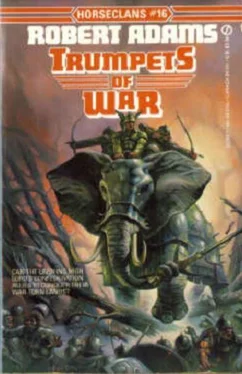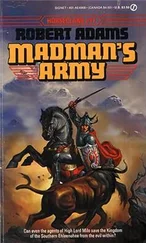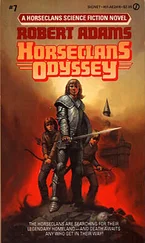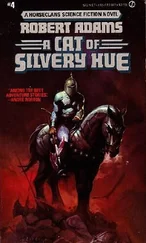Not only was the ancient royal palace of Thrahkohnpolis ghost-ridden with the shades of all the rulers who had died by violence within its walls, and a bit charred from the fire set by Zastros’ immediate predecessor just before he fell on his sword, but Thoheeks Grahvos found to his chagrin that a fair bit of it had been at least partially looted since he and the rest had followed the. Green Dragon Banner up into Karaleenos with Zastros. Moreover, a goodly proportion of the career bureaucrats had left the capital city, and those few that he could have dug out and brought back indicated precious little desire to resume their previous functions under his or anyone else’s aegis.
Nor could he even blame them, not really, for in the chaos of the last couple of decades in the Kingdom of the Southern Ehleenoee, such positions had become exceedingly high-risk jobs. But lacking them and
withoutmore than a bare handful of experienced slaves remaining, he quickly realized that there was just no way possible to set the palace complex back into motion and keep it running for long. So very depopulated was Thrahkohnpolis itself become that there was not even a pool from which he could impress workers to possibly labor as they trained for jobs in the palace.
That was when he decided to move his erstwhile capital to his own principal seat, the city and duchy of Mehseepolis, lying somewhat south and west of Thrahkohnpolis.
“I know, I know,” he told the Council of Thoheeksee upon his announcement of his decision, “there will be those who are sure to say that I mean to make myself king . . . but, gentlemen, there are those who are already saying that and many more that are thinking it, and only time and the actions of our Council will prove to these ones just how wrong are their present suppositions and slanders of me, the Council and our laudable aims.”
“But, dammit, Grahvos,” rumbled Thoheeks Bahos, “granted, your Mehseepolis is a strong city—it’s never fallen in all of memory that I’ve ever heard of—and so, rich, but as I recall from visits, it’s not all that large. Where could you put a capital complex?”
Grahvos shrugged. “Simple. I’ll turn over the thoheeks’ palace to the Council and government and move my personal seat to Eepseelospolis, my second city.”
At this, young Thoheeks Vikos asked wonderingly, “Your pardon, Grahvos, but do you mean to cede all of Mehseepolis and its rich lands to Council? That’s what it sounds like you’re doing.”
“If that were what it required to set things right in the lands we all call home, I’d not stick at giving half of all I own, Vikos,” Grahvos declared sincerely, feelingly. “But in practice, here, no. Let us say that I am granting Council a long-term lease of as much of the city of Mehseepolis as they need to fulfill the functions of our new government, but the lands thereabout will remain mine.
“I had assumed Council approval of this decision—for it is clear that we cannot remain in this sprawling, damaged place, not with the ceilings falling down about our ears, vermin scuttling across rooms from every nook and cranny, the kitchen hearths drawing so poorly that all our food must be cooked outside over open fires, all of the complex wells polluted and so little furnishings remaining that we might as well be camping out in some hoary ruin. Because of my assumption, I have already put such few royal slaves and a detachment of my warband to loading the pitiful remnants of records and files as survived the looting and vandalisms, the fire and the violent turnovers this place has been seeing regularly onto some wagons and wains. If you are all amenable, we’ll plan to quit this place and take the road down to Mehseepolis in two days.
“But it will not be a short trip, gentlemen. No, I think that we must use this opportunity to pause at every city and town and seat of power along the way in order to explain what happened up north and tell as many people as possible just what is now intended, make it clear to all of them that there will never be another king, despite the fact that our land will become more powerful than ever it was under any of the kings.”
The noblemen who rode through the outer gate, up the passage that led through the thick walls to the inner gate and so up the ascending grade into the hilltop fortress-city of Mehseepolis were, after six weeks of riding through lands that had been bountiful, rich and very populous within very recent times, shaken, tight-lipped and silent, each buried in his own thoughts, his own impressions of the near-wasteland they had traversed since leaving the wrecked palace at what had been the royai capital, seat of the kings of the Southern Ehleenoee.
The first shock to them had been the deplorable condition of the very roads themselves, all weedy and overgrown with brush, the paving stones beginning to cant, here and there, the wooden boles of the corduroyed sections become so soft with rot that they were now a danger to horses or mules, not to mention riders. Cuts, for long untended, had eroded down to cover many stretches of roadway with red mud and rocks of all sizes. Overgrown shoulders now offered ready-made ambush points for brigands, and even though the size of Thoheeks Grahvos’ party and the presence of so many armed and armored men saw them pass along the road unmolested, there were many grisly evidences of others not so strong or fortunate who had unwisely made to use the road before them.
As for the once-numerous unwalled villages and small towns along the Royal Road, not even one remained inhabited, all were become only charred, tumbled, well-looted and much-overgrown ruins, lairs for vermin and those beasts and birds for which vermin was prey—owl, skunk, weasel, wildcat and serpent. And right many of the walled towns, most of the smaller, weaker ones, were in little better shape.
The larger and stronger places that had weathered the chaos and endured were become distrustful, unfriendly or downright hostile to armed strangers of any description. Some of these places loosed arrows and stones and engine-spears at any attempted approach to their walls and gates of even small parties, most heard out what was shouted up to them and then ordered the parties away on pain of death, a very few allowed Grahvos and two or three of the other noblemen into their gates, treated them at least civilly, heard what they had to say and then ushered them out, bidding them welcome to return if they ever really did put the land back to peace and order.
The once-rich lands and pastures were mostly become ill-tended or completely unworked wildernesses of weeds and brush and encroaching woodlands; such few kine as they chanced across or sighted from afar were become as lean and chary as game beasts. Masterless dogs ran in large, dangerous packs, all of them bony, on the verge of starvation and willing to attack anything or anyone . . . except for the mean, muscular, long-tushed sounders of feral swine.
But hardest for the travelers to take were the onetime seats of the minor nobility—komeesee, vahrohnohsee, opokomeesee. Some few had been just abandoned and now were tenanted by commoners who probably were also bandits, but most had obviously fallen by storm, and some of these were occupied by folk who claimed to be retainers and servants of the extirpated or scattered and absent lords. A handful of the larger or more cunningly placed and built holds had never fallen, for all that they showed the prominent traces of assaults and sieges, but not even in these was the present lord he who had been such a decade before—sons, grandsons, cousins, nephews and more distant kin now held the holds and the lands (such as most of those lands were become), and a few were illegally styling themselves with the vacated titles, as well.
It had not been until the party was within the bounds of Grahvos’ double duchy that they found a hold still occupied by the man who had been confirmed to that inheritance by his overlord. Opokomees Eeahnos Ehreetheeos had lost two sons and been himself crippled while fighting for his overlord and then-Thoheeks Zastros during the first rebellion, years agone, and when High King Zastros made to commence his march of conquest northward and into the Kingdom of Karaleenos, theopokomees had been too infirm and aged to join and his two grandsons too young.
Читать дальше












